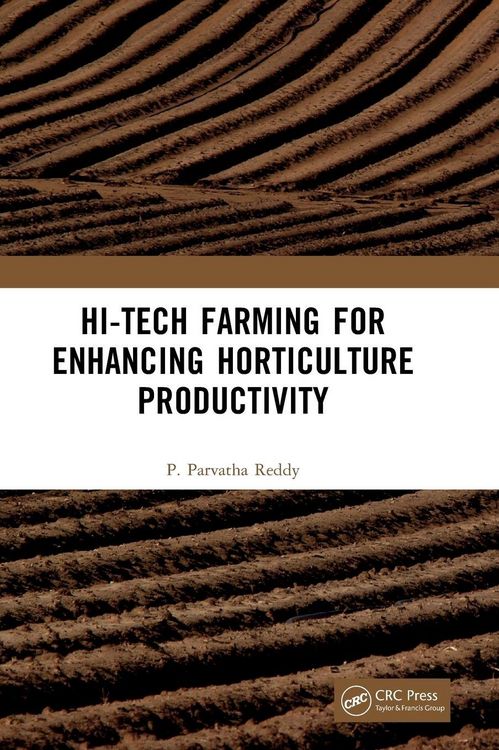Hi-Tech Farming for Enhancing Horticulture Productivity
264,99 €
inkl. MwSt,
Lieferung nach Hause
Beschreibung
Details
Einband
Gebundene Ausgabe
Erscheinungsdatum
06.02.2024
Verlag
Taylor & FrancisSeitenzahl
588
Maße (L/B/H)
26/18,3/3,6 cm
Gewicht
453 g
Sprache
Englisch
ISBN
978-1-03-269051-3
This book highlights the underlying principles and outlines some of the key hi-tech practices and technology interventions required to achieve enhanced productivity.
It discusses horticulture technology interventions like varietal improvement including genetically modified crops; good agricultural practices like optimum planting density, micro-irrigation, fertigation, integrated nutrient management, plant bioregulators, precision horticulture, protected cultivation, nanotechnology, and integrated farming systems; integrated management of insects, mites, disease pathogens, nematodes, and weeds; and post-harvest management practices like handling, storage and processing to reduce crop losses. The importance of attaining food and nutritional security through hi-tech horticulture and profitable marketing of horticultural produce is also discussed.
This book will be of immense value to the scientific community involved in teaching, research and extension activities related to hi-tech horticulture strategies for enhancing productivity in enhancing farmers' income, food, nutrition and livelihood security. The material can be used for teaching postgraduate courses. The book can also serve as a very useful reference to policymakers and practicing farmers.
Unsere Kundinnen und Kunden meinen
Verfassen Sie die erste Bewertung zu diesem Artikel
Helfen Sie anderen Kund*innen durch Ihre Meinung
Kurze Frage zu unserer Seite
Vielen Dank für dein Feedback
Wir nutzen dein Feedback, um unsere Produktseiten zu verbessern. Bitte habe Verständnis, dass wir dir keine Rückmeldung geben können. Falls du Kontakt mit uns aufnehmen möchtest, kannst du dich aber gerne an unseren Kund*innenservice wenden.
zum Kundenservice
